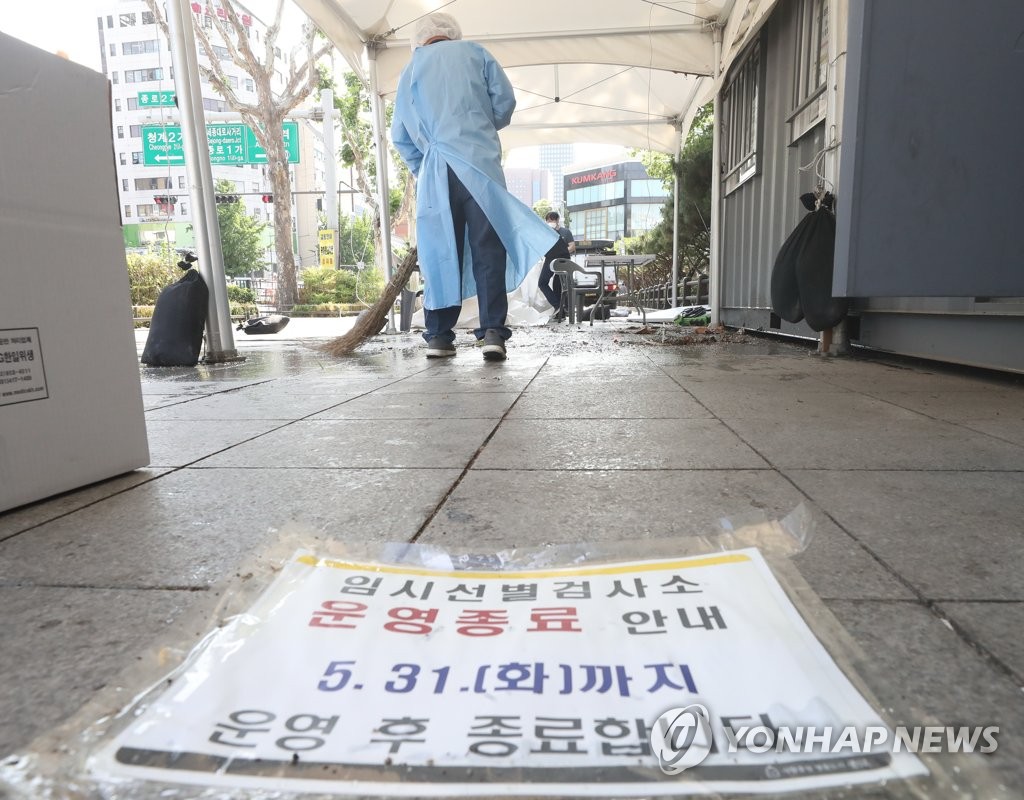- California Assembly OKs highest minimum wage in nation
- S. Korea unveils first graphic cigarette warnings
- US joins with South Korea, Japan in bid to deter North Korea
- LPGA golfer Chun In-gee finally back in action
- S. Korea won’t be top seed in final World Cup qualification round
- US men’s soccer misses 2nd straight Olympics
- US back on track in qualifying with 4-0 win over Guatemala
- High-intensity workout injuries spawn cottage industry
- CDC expands range of Zika mosquitoes into parts of Northeast
- Who knew? ‘The Walking Dead’ is helping families connect
S. Korea’s new COVID-19 cases below 16,000 amid slowing virus trend
South Korea’s new COVID-19 cases fell to below 16,000 Wednesday amid a slowing virus trend, as authorities take steps for a return to pre-pandemic normalcy.
The country added 15,797 COVID-19 infections, including 44 cases from overseas, bringing the total caseload to 18,119,415, the Korea Disease Control and Prevention Agency (KDCA) said.
The daily cases have marked a steady decline since the all-time daily high of more than 620,000 in mid-March. The infection numbers have fallen to five digits or under since April 21.
The death toll came to 24,197, up 21 from Tuesday, with the fatality rate at 0.13 percent.
The number of critically ill patients stood at 188, up from 180 the previous day.
As of 9 p.m. Wednesday, the country had added 9,693 new cases, sharply down 5,529 from the same time a day earlier, according to local governments and health authorities. The greater Seoul area accounted for 43.4 percent.
Daily cases are counted until midnight and announced the following morning.
Starting Wednesday, international arrivals need to take only one polymerase chain reaction test within the first three days of arrival, in further easing of COVID-19 restrictions amid a virus slowdown and in line with border reopenings in other countries.
Rapid antigen tests that had been required for inbound travelers by the end of the first week of arrival are now a recommendation.
The age of minors for self-isolation exemption is extended to 11 from 5.
Also beginning Wednesday, the government will shut down most of the makeshift COVID-19 testing stations and temporary treatment centers across the country. Health authorities said they will increase the number of private clinics and local hospitals designated for COVID-19 treatment.
As of Tuesday, 44.58 million, or 86.9 percent of the population, had completed the full two-dose vaccinations, and 33.30 million, representing 64.9 percent, had received their first booster shots.
More than 4.1 million people, or 8 percent, had gotten their second booster shots, the KDCA said.

A medical worker sweeps the floor at a COVID-19 testing station in Seoul’s central district of Jongno on May 31, 2022, a day before its closure as South Korea is set to remove most of the makeshift booths amid a decline in infections. (Yonhap)











